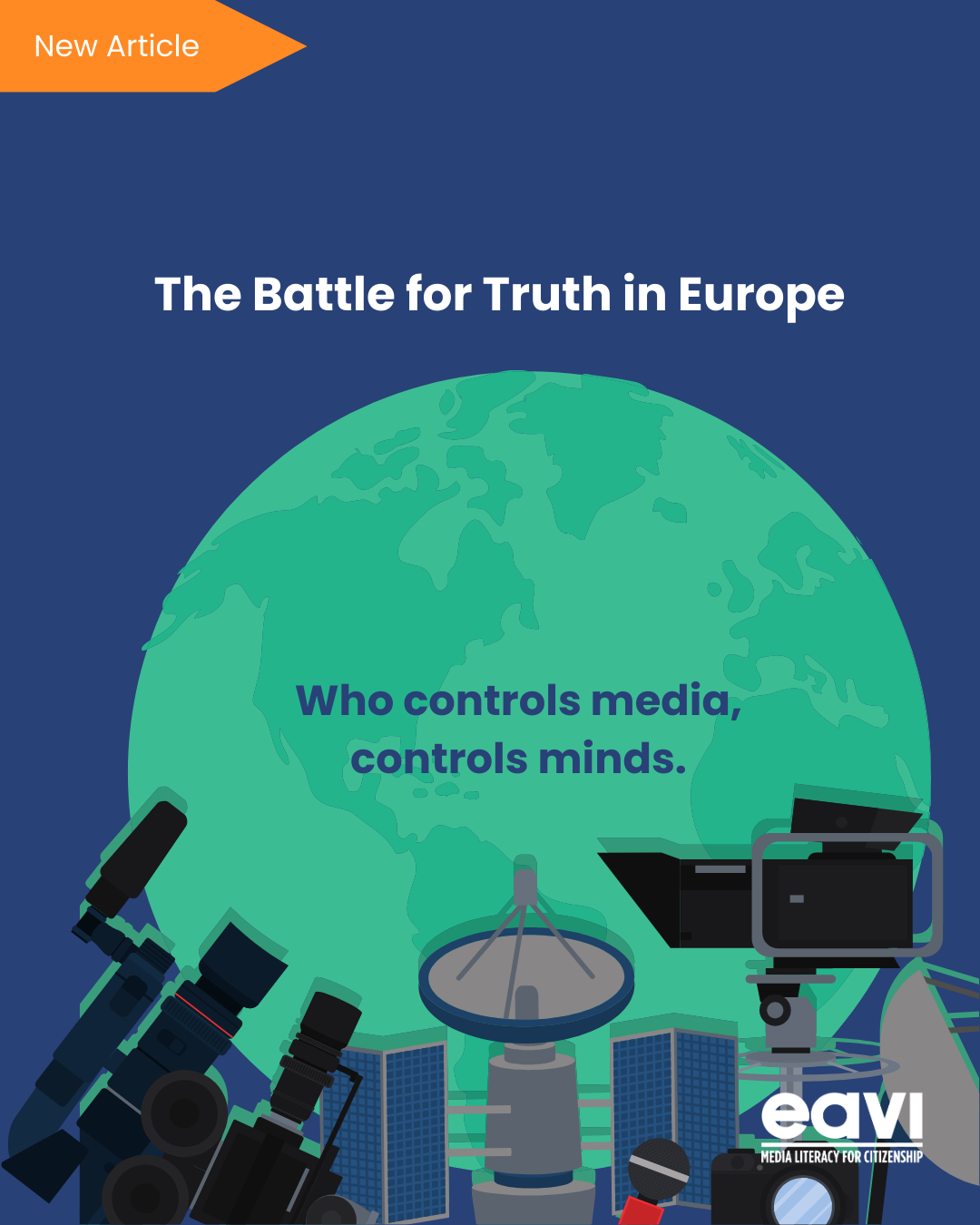
The European Parliament’s Spring 2024 Eurobarometer survey is the latest survey conducted before the 2024 European elections. The survey was carried out by Verian (previously known as Kantar Public) between 7 February and 3 March in the 27 EU Member States. More than twenty-six thousand (26411) interviews were conducted face-to-face using CAPI (Computer Assisted Personal Interviewing). The results were weighted according to the population size of each country.
Survey Findings
According to the survey, there is notable interest among citizens in the upcoming European elections and an understanding of their importance in the current geopolitical context. One of the most significant findings seems to be the increase in citizen interest in voting. 60% of citizens express an interest in voting, reflecting an 11-percentage point increase in overall interest compared to the pre-electoral period before the 2019 European Elections. This trend has been increasing in all Member States since 2019. Moreover, 71% of European citizens seem to be likely to vote in the upcoming elections. 53% of the citizens also suggested that it is of high importance to vote in the European elections.
However, the actual turnout is expected to be lower than the survey suggests due to the possible bias in the methodology. Some respondents might have felt pressured to answer what was expected from them as this might be considered more “socially acceptable”. Moreover, the sample who have accepted to participate in the survey might already be interested in issues such as European politics and elections and might not necessarily be representative of the general public opinion.
The survey also reveals a generally positive attitude towards the EU among European citizens. There are possible explanations for this positive attitude. Firstly, 47% of European citizens have a positive image of the EU after the COVID-19 pandemic and the war in Ukraine. Therefore, there is a consensus that such global issues should be tackled by the EU.
71% of European citizens also believe that their country benefited from the EU. In all EU Member States, most citizens think of the EU positively, demonstrating all-time high figures according to the survey. 73% of the citizens also think that the EU’s actions have an impact on their daily lives, which shows the perception among the citizens regarding the effectiveness and importance of the EU. Moreover, 61% of the citizens are optimistic about the future of the EU. Secondly, there is a perception among the citizens that some policy initiatives of the EU are important, which explains the positive attitude towards the EU. At the national level, the EU defence and security is mentioned first in nine countries and most significantly in Denmark (56%). Thirdly, another possible explanation is the positive image of the European Parliament. 41% of the citizens have a positive image of the Parliament, and 56% think that it should play a more important role in the future. Lastly, the EU’s position in the world is another explanation of the positive attitude towards it. 4 in 10 citizens think the EU’s role in the world has become more important. Citizens also believe that defence and security policies should be prioritised by the EU to reinforce its image in the international context, according to the survey.
The survey, therefore, reflects a generally positive perception of the EU among European citizens. However, challenges such as the rise of populism, extreme right-wing parties, the disinformation/propaganda phenomenon, and a weakening sense of a European identity and culture remain concerns. Additionally, there is a possibility that the EU may prioritise its budget towards defence and security issues rather than investing in culture and education. Despite these challenges, there is still hope. Citizens prioritise peace, democracy, and human rights. More specifically, 47% of Europeans want the European Parliament to focus on peace, 33% on democracy, and 24% on protecting human rights.
Social media and online news consumption also present potential challenges. Currently, 47% of European citizens use social media to follow news and current events, and 37% follow influencers on these platforms. This trend may influence the risk of disinformation, potentially swaying public opinion towards supporting the EU’s military investment over social issues such as health and education. EAVI hopes that citizens, especially young people, will continue to advocate for peace and be able to use the media to actively participate to democracy and contribute to a better society.
Reference:
https://europa.eu/eurobarometer/surveys/detail/3272 (European Parliament Spring 2024 Eurobarometer Survey)

The European Parliament’s Spring 2024 Eurobarometer survey is the latest survey conducted before the 2024 European elections. The survey was carried out by Verian (previously known as Kantar Public) between 7 February and 3 March in the 27 EU Member States. More than twenty-six thousand (26411) interviews were conducted face-to-face using CAPI (Computer Assisted Personal Interviewing). The results were weighted according to the population size of each country.
Survey Findings
According to the survey, there is notable interest among citizens in the upcoming European elections and an understanding of their importance in the current geopolitical context. One of the most significant findings seems to be the increase in citizen interest in voting. 60% of citizens express an interest in voting, reflecting an 11-percentage point increase in overall interest compared to the pre-electoral period before the 2019 European Elections. This trend has been increasing in all Member States since 2019. Moreover, 71% of European citizens seem to be likely to vote in the upcoming elections. 53% of the citizens also suggested that it is of high importance to vote in the European elections.
However, the actual turnout is expected to be lower than the survey suggests due to the possible bias in the methodology. Some respondents might have felt pressured to answer what was expected from them as this might be considered more “socially acceptable”. Moreover, the sample who have accepted to participate in the survey might already be interested in issues such as European politics and elections and might not necessarily be representative of the general public opinion.
The survey also reveals a generally positive attitude towards the EU among European citizens. There are possible explanations for this positive attitude. Firstly, 47% of European citizens have a positive image of the EU after the COVID-19 pandemic and the war in Ukraine. Therefore, there is a consensus that such global issues should be tackled by the EU.
71% of European citizens also believe that their country benefited from the EU. In all EU Member States, most citizens think of the EU positively, demonstrating all-time high figures according to the survey. 73% of the citizens also think that the EU’s actions have an impact on their daily lives, which shows the perception among the citizens regarding the effectiveness and importance of the EU. Moreover, 61% of the citizens are optimistic about the future of the EU. Secondly, there is a perception among the citizens that some policy initiatives of the EU are important, which explains the positive attitude towards the EU. At the national level, the EU defence and security is mentioned first in nine countries and most significantly in Denmark (56%). Thirdly, another possible explanation is the positive image of the European Parliament. 41% of the citizens have a positive image of the Parliament, and 56% think that it should play a more important role in the future. Lastly, the EU’s position in the world is another explanation of the positive attitude towards it. 4 in 10 citizens think the EU’s role in the world has become more important. Citizens also believe that defence and security policies should be prioritised by the EU to reinforce its image in the international context, according to the survey.
The survey, therefore, reflects a generally positive perception of the EU among European citizens. However, challenges such as the rise of populism, extreme right-wing parties, the disinformation/propaganda phenomenon, and a weakening sense of a European identity and culture remain concerns. Additionally, there is a possibility that the EU may prioritise its budget towards defence and security issues rather than investing in culture and education. Despite these challenges, there is still hope. Citizens prioritise peace, democracy, and human rights. More specifically, 47% of Europeans want the European Parliament to focus on peace, 33% on democracy, and 24% on protecting human rights.
Social media and online news consumption also present potential challenges. Currently, 47% of European citizens use social media to follow news and current events, and 37% follow influencers on these platforms. This trend may influence the risk of disinformation, potentially swaying public opinion towards supporting the EU’s military investment over social issues such as health and education. EAVI hopes that citizens, especially young people, will continue to advocate for peace and be able to use the media to actively participate to democracy and contribute to a better society.
Reference:
https://europa.eu/eurobarometer/surveys/detail/3272 (European Parliament Spring 2024 Eurobarometer Survey)

The European Parliament’s Spring 2024 Eurobarometer survey is the latest survey conducted before the 2024 European elections. The survey was carried out by Verian (previously known as Kantar Public) between 7 February and 3 March in the 27 EU Member States. More than twenty-six thousand (26411) interviews were conducted face-to-face using CAPI (Computer Assisted Personal Interviewing). The results were weighted according to the population size of each country.
Survey Findings
According to the survey, there is notable interest among citizens in the upcoming European elections and an understanding of their importance in the current geopolitical context. One of the most significant findings seems to be the increase in citizen interest in voting. 60% of citizens express an interest in voting, reflecting an 11-percentage point increase in overall interest compared to the pre-electoral period before the 2019 European Elections. This trend has been increasing in all Member States since 2019. Moreover, 71% of European citizens seem to be likely to vote in the upcoming elections. 53% of the citizens also suggested that it is of high importance to vote in the European elections.
However, the actual turnout is expected to be lower than the survey suggests due to the possible bias in the methodology. Some respondents might have felt pressured to answer what was expected from them as this might be considered more “socially acceptable”. Moreover, the sample who have accepted to participate in the survey might already be interested in issues such as European politics and elections and might not necessarily be representative of the general public opinion.
The survey also reveals a generally positive attitude towards the EU among European citizens. There are possible explanations for this positive attitude. Firstly, 47% of European citizens have a positive image of the EU after the COVID-19 pandemic and the war in Ukraine. Therefore, there is a consensus that such global issues should be tackled by the EU.
71% of European citizens also believe that their country benefited from the EU. In all EU Member States, most citizens think of the EU positively, demonstrating all-time high figures according to the survey. 73% of the citizens also think that the EU’s actions have an impact on their daily lives, which shows the perception among the citizens regarding the effectiveness and importance of the EU. Moreover, 61% of the citizens are optimistic about the future of the EU. Secondly, there is a perception among the citizens that some policy initiatives of the EU are important, which explains the positive attitude towards the EU. At the national level, the EU defence and security is mentioned first in nine countries and most significantly in Denmark (56%). Thirdly, another possible explanation is the positive image of the European Parliament. 41% of the citizens have a positive image of the Parliament, and 56% think that it should play a more important role in the future. Lastly, the EU’s position in the world is another explanation of the positive attitude towards it. 4 in 10 citizens think the EU’s role in the world has become more important. Citizens also believe that defence and security policies should be prioritised by the EU to reinforce its image in the international context, according to the survey.
The survey, therefore, reflects a generally positive perception of the EU among European citizens. However, challenges such as the rise of populism, extreme right-wing parties, the disinformation/propaganda phenomenon, and a weakening sense of a European identity and culture remain concerns. Additionally, there is a possibility that the EU may prioritise its budget towards defence and security issues rather than investing in culture and education. Despite these challenges, there is still hope. Citizens prioritise peace, democracy, and human rights. More specifically, 47% of Europeans want the European Parliament to focus on peace, 33% on democracy, and 24% on protecting human rights.
Social media and online news consumption also present potential challenges. Currently, 47% of European citizens use social media to follow news and current events, and 37% follow influencers on these platforms. This trend may influence the risk of disinformation, potentially swaying public opinion towards supporting the EU’s military investment over social issues such as health and education. EAVI hopes that citizens, especially young people, will continue to advocate for peace and be able to use the media to actively participate to democracy and contribute to a better society.
Reference:
https://europa.eu/eurobarometer/surveys/detail/3272 (European Parliament Spring 2024 Eurobarometer Survey)








































































































































































